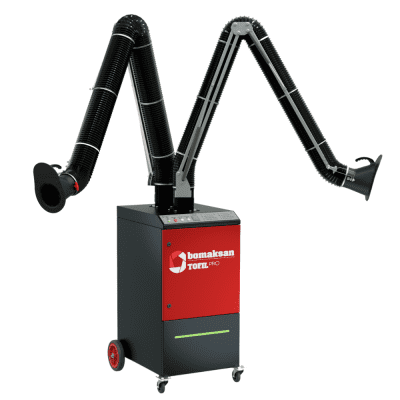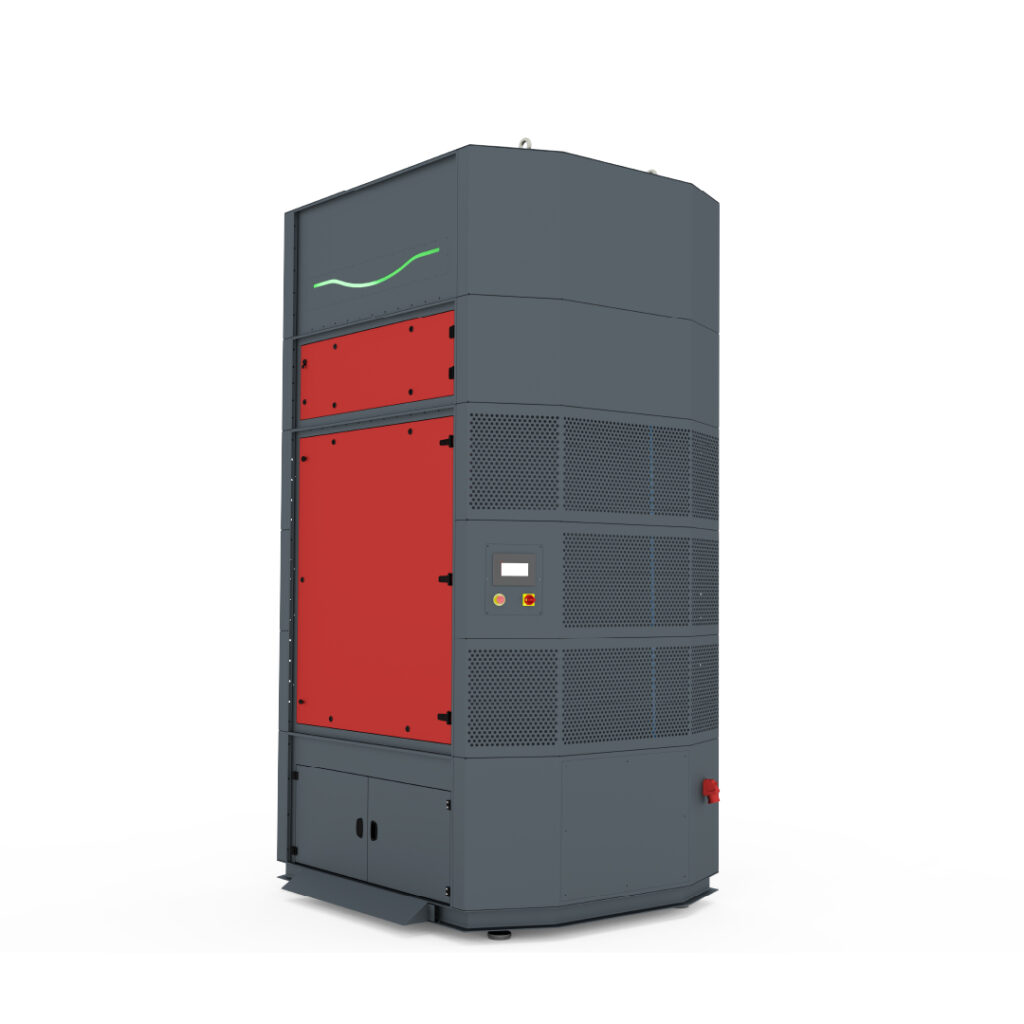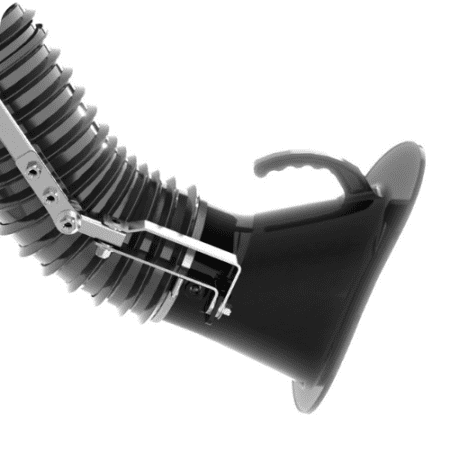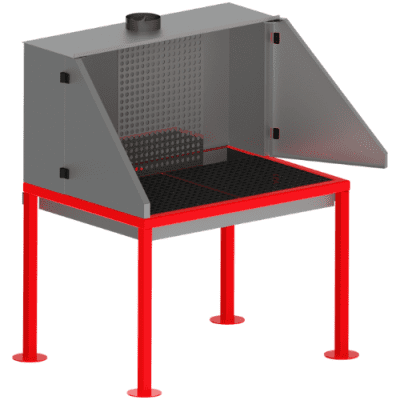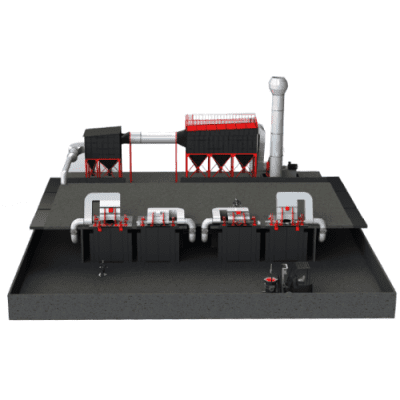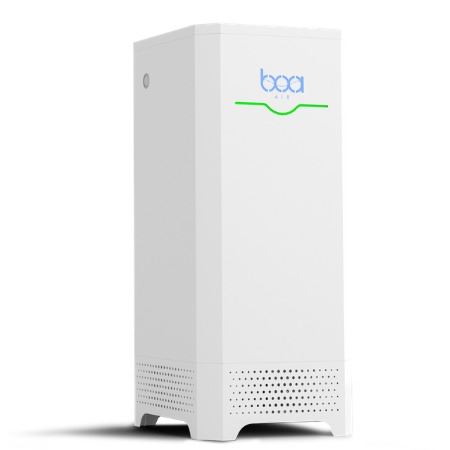Menu
Close
FAQs
> Bomaksan Academy > FAQs
FAQs
How small are coronavirus particles?
Scientists have already succeeded in determining the sizes of coronavirus (Covid-19) particles as a result of measurements they have made with electron microscopes. Coronavirus particles have a spherical structure and are approximately 0.125 microns in diameter. The smallest coronavirus particle is 0.06 micron and the largest particle is 0.14 micron.
Can HEPA Filtered Air Purifiers reduce the spread of coronavirus?
As a result of many independent studies, it has been revealed that HEPA filters can capture coronavirus and similar sized particles at a rate of 99%. In this case, in enclosed spaces and indoors with high human circulation, the use of Portable HEPA Filtered Air cleaning devices to be placed inside the space in addition to the existing ventilation system will help to neutralize the coronavirus and similar harmful particles that can be transported by air at a much higher rate.
How do coronavirus and other viruses spread and what protection do air purifiers protect against this situation?
Coronavirus and other viruses infect healthy people in areas and spaces where people are in close contact, when particles resulting from the speech, coughing or sneezing of an infected person are carried by air to other people. To quickly protect from virus particles that can instantly spread to the indoor air, the use of HEPA filtered air purification devices that quickly capture the air containing virus particles and effectively filter the suspended virus particles and return them to the indoor environment in a clean way is of great importance. With the use of these devices, in environments with high human circulation, polluted air with the potential to carry and spread harmful pathogens and particles is quickly absorbed, cleaned with high efficiency HEPA filters and returned to the indoor environment without harm.
What kind of air purifier should I use to protect people indoors and in enclosed spaces from harmful particles such as Coronavirus?
As a result of various studies on this subject, it has been revealed that the use of HEPA class filters, which have been used for many years to create hygienic areas in hospitals, laboratories and clinical environments, will be sufficient. Thanks to high efficiency HEPA filters, coronavirus etc. viruses can be caught on the filter surface with 99% efficiency. Another important point is that the air purifier has a ventilation capacity sufficient to ensure that it cleans the indoor air sufficiently. According to the size of the indoor or enclosed environment, air cleaning devices with different ventilation capacities should be selected, which have the ability to ventilate the indoor air at the minimum air cycle rates specified in the standards.
Covid-19 Disease Can Be Transmitted by Air?
Yes. Clinical studies have shown that viruses such as coronavirus and influenza can also be transmitted to healthy people by airborne particles of infected patients through speech, coughing or sneezing. These released particles can be of different sizes or these can be small particles, most of which are invisible to the eye. Invisible particle sizes can range from 0.5 to 15-micron meters. According to studies, a 1 micron-meter droplet can have enough virus carrying capacity to cause infection.
Is there a quick solution to prevent the spread of viruses or other harmful components through the air that can be applied in the confined spaces we live in?
Yes. The first precaution that may come to mind, you can adapt your system to work with 100% fresh air by canceling the application of mixing return air with fresh air to save energy in your central ventilation installation. Apart from this, the fastest and most effective measure that can be taken should be to install portable type air cleaning devices with HEPA filters that clean the indoor air instantly and quickly in areas with high human density.
Is it possible to catch viruses with Air Filters?
Yes. With filters that have sufficient capture efficiency, it is possible to catch viruses that will spread through the air. Many independent studies with HEPA class filters have proven that HEPA class filters can capture 99.95% of viruses of different particle sizes and virus-carrying droplets.
Is it useful to renew filters in existing systems with high-class HEPA Filters to prevent virus spread?
The answer to this question will depend entirely on the capabilities of the current system. Replacing filters with a higher filtering capacity may result in higher virus retention on the filter surface. However, the fan capacity of your existing central air handling unit may not meet the additional pressure loss caused by a filter with a higher filtration class, or the sealing class of the plant structure may prevent you from having a more effective filtration quality. Instead of making challenging revisions on the central system, it will be possible to get much more effective results by placing the portable HEPA filter air purification devices in the right areas indoors.
Can the viruses trapped / caught in the filters get into the air passing over the filter again?
No. Viruses caught by HEPA filters are tightly bound to the fibers in the filter media. After the virus is bound and caught in the fibers in the filter media, they will dry out and become ineffective after a certain period of time. Studies with coronavirus have shown that Covid-19 particle adhering to a surface cannot survive more than 3 days on that surface.
What should be done to increase the air quality and to breathe healthier air?
Spreading the use of HEPA filtered Indoor Air Purifiers, whose effectiveness has been tested and approved by many independent organizations, is the fastest and most effective measure that can be taken in this regard. With portable type HEPA Filtered air purifiers, you can effectively clean the indoor air continuously and protect yourself from breathing allergic particles such as viruses, bacteria, mold, fungi or pollen in the air. Do not forget that the more you clean (filter) the indoor air, the more you stay away from the negative effects of harmful particles in the air on your health.
What should be considered when changing the filters in the devices?
Filters that have reached the end of their service life should be replaced in accordance with hygiene protocols specified by various standards. The risk of virus contamination during filter replacement is very low. Viruses can remain alive for an average of up to three days on the surfaces where they adhere to or are caught. However, it is recommended to change the filter in accordance with the necessary hygiene protocols in order to avoid the effects of harmful dust accumulating on the filter. During the change, protective clothes should be worn to cover the whole body, gloves should be worn on hands, mouth and nose area should be protected with a mask and protective glasses should be used. The used filter should be taken out of its place after taking it in a plastic bag and sealing it tightly.
Does using multiple filters instead of a single stage filter provide more protection?
The answer to this question depends on the situation. A single stage HEPA filter to be used under normal conditions will provide sufficient protection, but the HEPA Filter will not be sufficient for the filtration of odor and some harmful gas particles in the gas phase. In this case, as a second filtration stage, active carbon filters used to capture gas molecules should be used. Thanks to the two-stage filtration to be made in this way, a much more qualified and safe indoor air quality is achieved by HEPA filters capturing viruses, bacteria and other harmful particles and by the active carbon filter capturing harmful gas molecules. By using a pre-filter that captures coarse particles, which are called as coarse filters before the HEPA filter and active carbon filter, before reaching these two-stage filters, the life of HEPA and active carbon filters can be extended and work more efficiently.
Couldn’t find the answer you were looking for? Contact us now!
Contact Information
Head Office: Küçükbakkalköy Mah. Serdar Sk. Gresan Plaza No:1/14 Ataşehir/İstanbul/Turkey
Factory: 5. Organize Sanayi Bölgesi Büyükkayacık Mh. 509 nolu Sk. No: 8/1
Selçuklu / Konya /TÜRKİYE
Factory:
sales@bomaksan.com
+90 216 541 93 34
+90 216 541 93 35
Contact Information
Head Office: Küçükbakkalköy Mah. Serdar
Sk. Gresan Plaza No:1/14 Ataşehir/
İstanbul/Turkey
Factory: 5. Organize Sanayi Bölgesi
Büyükkayacık Mh. 509 nolu Sk. No: 8/1
Selçuklu / Konya /TÜRKİYE
Factory:
sales@bomaksan.com
+90 216 541 93 34
+90 216 541 93 35
Bomaksan Dust Collection. It is an expert brand that has entered the production of Gas Treatment and Filtration devices and has managed to make a name for itself in the sector in a short time.
E-Newsletter Subscription
© 2017 - 2022 Bomaksan Industrial Air Filtration Systems. All Rights Reserved.

